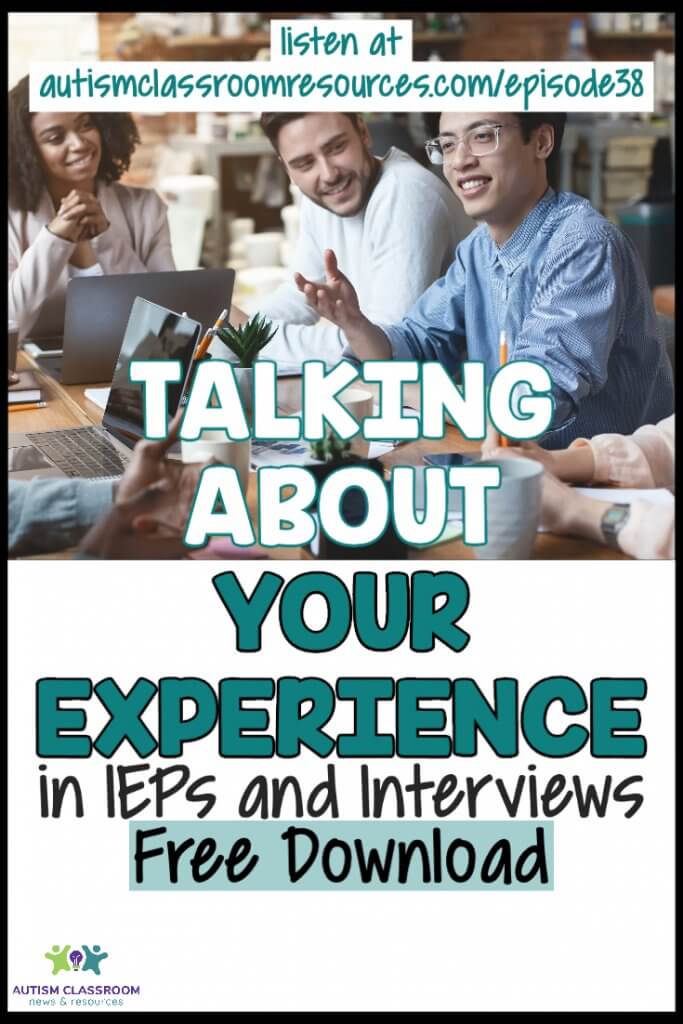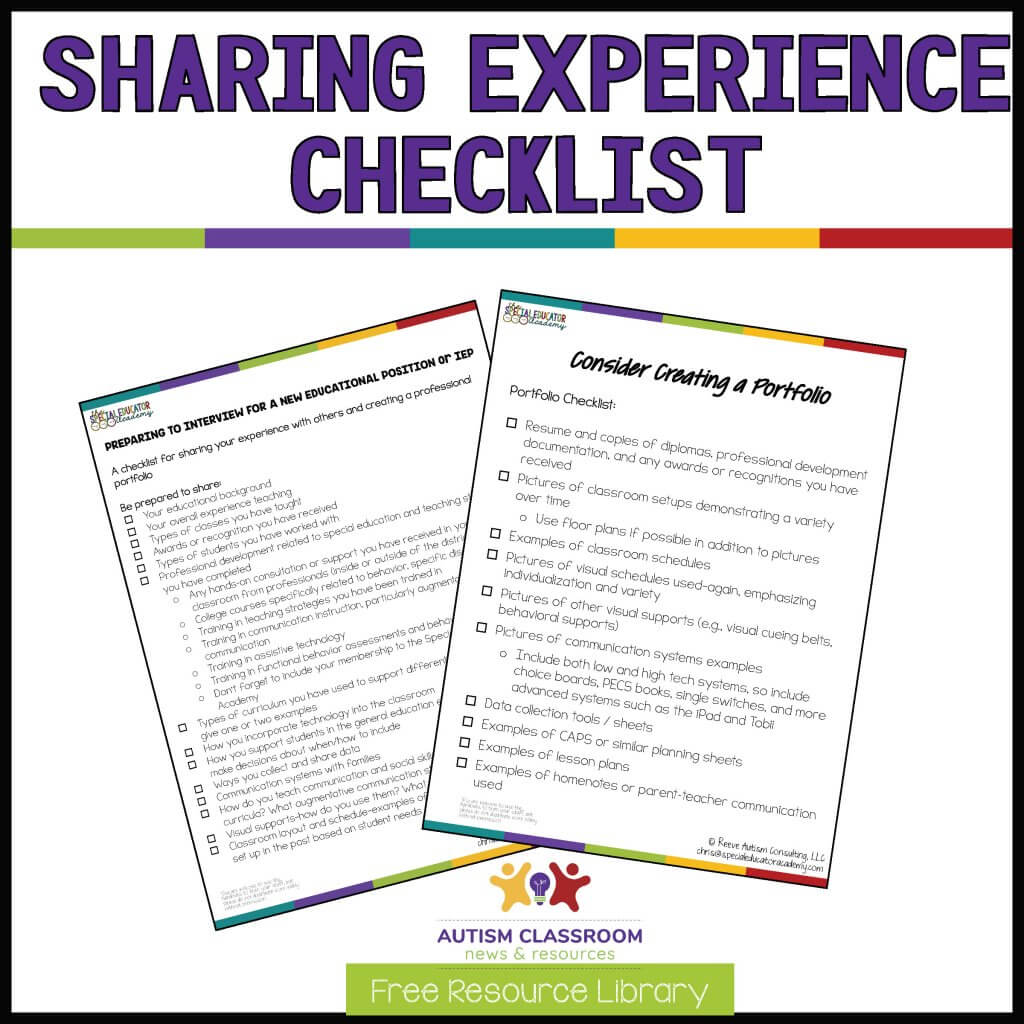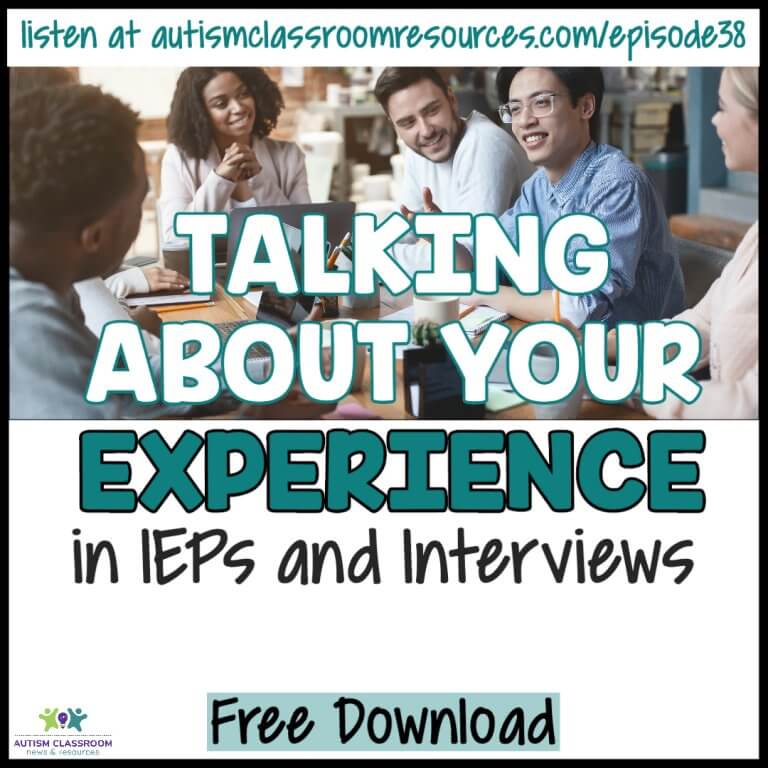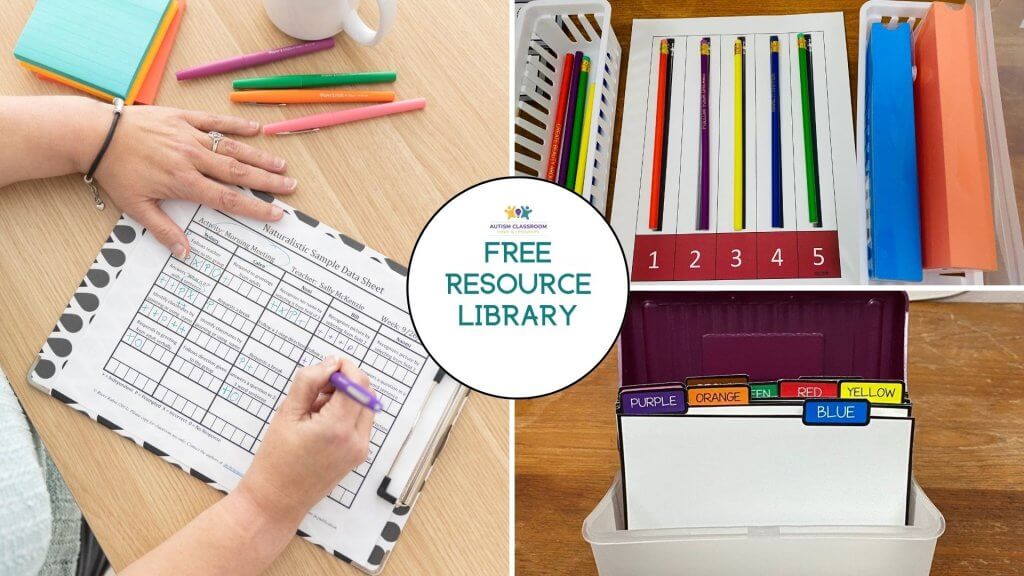What should special educators share about their backgrounds in interviews or IEPs? Special educators in the midst of our virtual teaching world are having online IEPs with new families and virtual interviews for new jobs. In our virtual teaching and virtual IEP world, we are starting to think about classrooms for next year. And so are families. The difference (among others) this year are that they can’t visit the classroom their child might be moving to.
Some special educators are job searching with virtual interviews for new jobs. Some are expecting new classroom makeups and planning for next year.
Why Talking the Talk is Important
Whether it is an interview for a new job or talking to parents about your program at an IEP, being able to talk about your professional experiences is becoming an increasingly important part of teaching. In the special education classroom, this becomes particularly relevant for a few reasons.
Communicating with Administrators
During an interview or observation, administrators often don’t know the disabilities and have difficulty assessing what instruction should look like for your students. This makes both hiring and teacher assessment difficult for them so being able to talk about how you make the decisions you do becomes important.
Parents Often Lack Experience
Parents are typically not experienced educators. Most parents will not know how to observe a classroom and determine whether it is a good fit for their child. They may know about strategies but not whether the teacher is using effective strategies appropriately.
Some parents will have become more skilled observers. But they may only be aware of one type of program (the one they had before you typically), so when they see something different they assume it won’t be a good fit.
Classrooms Change
In addition, often the classroom that a parent observes is different than the way it would look if their child was part of it. For instance, consider a child who needs significant instruction in learning readiness skills. His mother visits a classroom with many children being included in general education (because that’s what their program needed to be focused on). The mom observing might assume this classroom was not a good match for her child.
This could be despite the fact that the teacher had significant experience with more complex learners, an abundance of training and hands-on consultation around 1-1 systematic instruction focusing on learning readiness skills (e.g., following directions, imitation), just the year before the observation. It just so happened that this year, her kids needed something different…so she did what good teachers do–she adjusted.
Virtual IEPs
Finally, I think with the virtual nature of our interviews, education and IEPs at the moment, it’s going to be even MORE important to be able to articulate how you teach, your experience and more. This week’s podcast has some tips of information to have ready to share with families and some perspective on why it’s important.
Being Proactive
Have you ever had a family who questioned your experience? If you are a teacher or related service provider, especially if you have been doing this for a bit, you probably have.
Think about it. You go to the dr. An expert in their field. You see diplomas and certificates on their wall, right? Where do you see that in a classroom? How is a parent to know what your qualifications are? Or how to assess your skills?
We are talking about parents who are entrusting their child’s care and educational future to you. That sounds grand and dramatic, but it is true. Because of that building a relationship with the family is incredibly important. But that can only happen when there is trust…and you can start to build that trust by being ready and willing to answer questions about your background and experience.
This Episode
So today I want to give you a framework to prepare to talk about these things. You can use this in the context of thinking about IEPs and getting to know new families for next year. Or maybe you are interviewing for new jobs for next year. The same information is going to be helpful to an administrator interviewing you. Nothing makes an admin more confident about an interviewee’s skills than them being prepared to share specific information with them about their past experience and training.
Free Download
So, make sure you go to autismclassroomresources.com/episode38, the blogpost for this episode and grab a free checklist I have for you to help you prepare. It can help you prepare a professional portfolio as well. Which is a great way to share with families or administrators your qualifications experiences.
So let’s get started.
Having Skills Questioned
If you’ve ever had a parent question your skills and experience, you know how hard it is to stay calm and not get defensive. At least I do. Even after 30 years in this field and a Ph.D. I still have to take a deep breath when families, often angry parents, challenge my skills or knowledge.
It happens to all of us. The key is to understand that it’s coming from a desire to advocate for their child and often from not knowing what your skills and abilities are. I’ve worked with a lot of difficult family-school situations.
Since about 1998 that was my job in consulting. Schools usually called me in to address an issue. Sometimes I got to be proactive. But often, I came in when the situation was already on red alert. And the lack of trust (on both sides) complicated issues and often caused parents to lash out at me as I was trying to help–because I worked for the school.
Here’s the thing, though. I can’t say that in every situation I managed to win over the parents. I didn’t. But in many or maybe even most, we developed a good working relationship out of mutual respect.
It’s Not Just You
That respect went both ways and there is a lot to it. But for the purposes of this discussion, I want you to know that first, it’s not just you. It happens to all of us and it is rarely personal to you.
Two, getting defensive and upset about it is normal, but not helpful. So you have to take that deep breath, fill yourself up with confidence you may or may not feel, and share what your experience and skills are. If you are a new teacher, or in an area you don’t have lots of experience in, then be up front about it.
The more you prepare to be able to talk about your background and experience, the more confidence you project to families and potential employers. And the more confidence you feel in your skills. Hopefully these areas can be helpful in preparing you to feel that confidence too.
1. Your Educational Background and Overall Experience
It sounds basic, but think about it. You know that only certified teachers are employed by your school, but does a parent necessarily know what that means.
In addition, every state across the U.S. has different certification processes and designations. Some states have autism-specific certifications or endorsements. Some states do, but they aren’t really required in most situations (Florida). And some states don’t have anything disability-specific.
I’ve learned over the years that some universities do an amazing job of preparing students to work with complex learners like some of our kids with ASD. Some focus primarily on LD kids and teachers are left to figure out other learners on their own.
So, start with your degrees and then talk about your certifications. Talk about how long you have been teaching. If you are a new teacher, talk about your training and what it covered as well as your student teaching. Also if you are a new teacher or new to special education or autism (or any other disability), be prepared to talk about the type of support your district can provide you with and what training you will seek out to help you. Talk about the types of students you have worked with and DEFINITELY include any awards or recognition you have received as a teacher. Don’t claim beyond what you have done or received, but definitely don’t be shy.
2. Professional Development
What training and consultation have you received in your time as a teacher beyond your educational background?
- If you had classes that were specific to the child’s disabilities or needs (e.g., augmentative communication) share them.
- Are you taking master’s courses in autism?
- Studying for your BCBA?
- Have a consultant (like me) who comes regularly to your classroom to provide hands-on consultation? Include that!
- Have an in-district autism professional? A BCBA in the district who supports your class? Include that.
Research shows that hands-on training is much more effective at generalizing to the classroom than lecture-type training, so don’t discount the time you spend with those professionals.
I suggest saving flyers, handouts, and notes from professional development in a binder and keeping that training on your resume. I also recommend that districts keep a professional development log for all their staff so that if ever questioned, it is readily available.
You can’t possibly learn everything you need to know about all the types of students you will serve in your undergraduate or even graduate education, so keep track. You may not have a student who needs augmentative communication this year, but you might next year and that training will hopefully come in handy.
3. Curriculum
What curricula do you use in your classroom? Do you use the STAR? LINKS? Unique Learning System? ABLLS? VB-MAPP? Touch Math? Reading Mastery? How do you individualize and choose curricula for your students? If you are doing discrete trials, where do your programs come from? If you are using the district-wide curricula, how do you modify (or accommodate) for your students? When you decide to move to another curriculum? Based on what you know about their child, what curricula might you start with? Keep in mind what I have said in the past…your IEP is not your curriculum and it can’t possibly encompass everything you need to teach this student. Parents will often feel more comfortable when they know your process for using curricula in addition to the IEP goals and objectives.
4. Technology
How do you use technology in your classroom? I think this is an increasingly important element to prepare for. Given that when we go back to school in the fall, it’s likely that digital elements of our teaching will still be relevant. Knowing what online platforms you’ve used and how you approach distance teaching is probably going to become a more important question after our experience with this pandemic.
But also, you want to think about how does technology enhance your instruction (not replace it). Do you have kids who keyboard (probably)? How do you teach it? What assistive technology is used in your classroom or for students you support in general education? Give specific examples and pictures are ALWAYS great (as long as it doesn’t include identifying features of the students).
5. General Education
How do you support students in the general education environment? Do you have time to provide support to each student or observe at least periodically How do you collaborate with the general education teachers who teach your students?
If you have used the CAPS or a TIP with your students, consider having a couple of examples with de-identified information to share with families as a method of communicating across the team supporting students.
Be prepared to talk about how you make decisions about what times of day you might include this student based on his or her needs and goals and objectives. This is also a perfect role for the general education teacher in the classroom–to talk about the curriculum and how he or she has supported student in the past. They can also talk about the atmosphere of their grade level and how instruction is provided.
6. Data Collection
How do you take data? Share with families (and administrators) the types of data collection you use, how you summarize it and how you analyze it. Share how you share updates of children’s progress with families as well.
If data is a tricky area for you, come grab the free Creating a Data System webinar in our Resource library to help get you started. Or better yet, join us in the Special Educator Academy and take the Taming the Data Monster course. The whole course focuses on how to take AND analyze all types of data…and make it useful in the classroom.
Other Helpful Links
Data Collection in Autism
Don’t Hope! Teach! Analyze Your Data
7. Communication with Families
How do you communicate with families? Have home notes that you use to send home regular information? Share them.
Remember that many of your students don’t have a way to tell their parents about their day. Those who can tell them, often either don’t tell them or need assistance to talk about their day. Knowing what the events of the day were can be really helpful for families to encourage communication.
Also consider turning it around and asking parents to share information about their evenings and weekends to have topics of conversation with your students. Your communication system can go two ways.
8. Communication Systems and Social Skills
It’s a given that students on the spectrum have communication issues–whether they are high or low functioning. What types of supports do you use to work on communication?
With nonverbal students, what types of augmentative communication systems have you used? Include both low-tech (e.g., pictures, PECS) and high-tech (iPad, speech-generating devices). Consider sharing pictures of systems you have used in the past to show the variety (if you have it) of tools you have used.
Also talk about how you create communication opportunities in your classroom because communication has to go far beyond the device the student uses.
With higher functioning students, how do you teach pragmatics and social use of communication skills? How do you support social skills instruction in your classroom? On the playground? At lunch?
Be prepared to talk about how you create opportunities for socialization since we know that just being around others without disabilities is not sufficient to teach social skills.
9. Visual Supports
Most best-practice programs include the use of visuals in some form whether it’s schedules, behavioral support and/or visuals to support receptive language. Share pictures and examples of schedules you have used with students to show the variety you have used with different students. How have you individualized visual supports for your students in the past?
10. Classroom Design
Finally, think about taking pictures each year of your classroom and putting them together to show to families. It’s true that pictures are worth a thousand words and seeing a picture of a different class set up makes it much easier to see how your class changes based on the needs of your students. If you made even a rough sketch of a floor plan, consider saving it and sharing it as well to give an overall view of how the layout of the room has changed over time.
Portfolio Checklist
So, I’ve created a little checklist that you can change and add to for your situation that includes things to talk about (including those things listed above). It also includes examples you might want to keep in a professional portfolio to pull out and share with families, new administrators, etc. You can use it to create a portfolio that you can bring with you to IEPs, meetings with new administrators, or potentially to job interviews to help you talk about your experience.
Knowing that you are able to think outside the box and individualize for each student will go a long way to helping families, other professionals, and administrators know that you are able to teach their child. Having experience with many students with this disability is great, but unless you understand that every one of them is different and you can make changes in what you do for that helps people understand that your program is a good match for their child.
